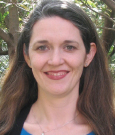"Nobody tells a 28 year old to get a colonoscopy.”
It’s the sad but true reality that many young adults may be at risk for colorectal cancer. Unfortunately, many people, young adults in particular, are not aware of the risk factors and do not get screened early enough to catch the disease when it is most treatable. This was the case for Michael Soussa.
Michael’s Mission
Michael Soussa was a vibrant young man when he was diagnosed with colorectal cancer just days after his 30th birthday. After enduring multiple surgeries and almost 40 months of chemotherapy and radiation, Michael passed away at the age of 33. Michael’s family, friends, and fiancée, along with Allyson Ocean, MD, Michael’s medical oncologist, were devastated by his loss. They created Michael’s Mission in the hopes of honoring his legacy and helping other patients and their families.
Michael’s Mission is a nonprofit organization focused on improving the quality of life and treatment options for those suffering from colorectal cancer through education, research, and patient support programs. Cindy Gavin, Executive Director of Michael’s Mission, has known the Soussa family for many years and remembers the family feeling scared and frustrated by the lack of information about colorectal cancer, and not having a community to turn to for support. “This truly motivated me, and it’s been my personal passion to help other patients and their families get the support they need because this disease is just awful,” she said.
Michael’s Mission is generously supporting a 2014 Conquer Cancer Foundation of ASCO Career Development Award to Marcia Russell, MD, PhD, for her project, “The Impact of Surgical Technique on Quality of Life After Rectal Cancer Surgery: Patient-Reported Outcomes in National Surgical Adjuvant Breast and Bowel Protocol R-04.”
Career Development Award
Despite the increasing number of rectal cancer survivors, very little is known about the impact of surgeon specialty or surgical technique on quality of life. Survivorship issues specific to rectal cancer patients may include alterations in bowel, bladder, and sexual function due to the combined effects of pelvic radiation and surgical dissection in the pelvis. Dr. Russell’s Cancer Development Award seeks to use patient-reported outcomes to evaluate the impact of surgeon specialty and adherence to technical measures of quality on both short-term (1-year) and long-term (5-year) rectal cancer survivors. This work is important to provide the data necessary to inform quality improvement efforts and improve the quality of life and outcomes for patients diagnosed with rectal cancer.
“We were really excited about this project because it directly aligns with our mission to improve quality of life for patients, and we’re interested in learning more about surgical techniques and how adherence to quality can affect outcomes for various patients,” said Ms. Gavin.
Investing in young investigators like Dr. Russell is a natural fit for Michael’s Mission since Michael passed away at such a young age, and the organization wants to encourage young researchers to focus on the unmet needs of colorectal cancer patients and to gravitate to this space, so we can hopefully move the needle forward, she explained.
Patient and Family Resources
In addition to supporting research projects, like Dr. Russell’s, Michael’s Mission is committed to helping the thousands of people who have to live with colorectal cancer navigate through their journey. At the heart of their mission is an extensive website, which offers discussion forums, resources, and tools.
“It’s a one-stop shop for patients and their families,” explained Ms. Gavin. “Ten years ago when Michael was diagnosed, the technology and social media platforms that exist today were not there. One goal when founding the organization was to create this dialogue. I did my homework and found out that we don’t need to create it. It already exists; we just need to join the conversation!”
The organization has also funded a pilot patient support program at the Jay Monahan Center for Gastrointestinal Health at NewYork-Presbyterian Hospital/Weill Cornell Medical Center, which is unique in that it has a social worker meet with patients while they are receiving chemotherapy. The feedback has been very positive, and the social worker has seen over 50 patients and averaged over 200 sessions in the first year. They are hoping to make the program scalable and roll it out more broadly.
Get Involved
In addition to offering tools and resources to help patients and families cope with colorectal cancer, Michael’s Mission offers a multitude of ways for people to get involved with their organization. For example, on their “Our Heroes” webpage, patients and survivors are encouraged to share their stories to provide strength, hope, and inspiration to others. “When someone going through their battle with colorectal cancer wakes up at 3 AM, feeling scared and alone, and is looking for an inspirational story, it is priceless for them to find this information,” said Ms. Gavin.
Conquer Cancer Foundation is honored to be working with Michael’s Mission to support Dr. Russell’s colorectal cancer research and raise awareness about this devastating disease. “Conquer Cancer Foundation and ASCO are well established and highly regarded organizations. Their missions really align directly with our goals, so there are many synergies between the organizations, and it felt like a natural fit. We’re really excited to be working with the Conquer Cancer Foundation!” said Ms. Gavin.
To learn more about the Conquer Cancer Foundation’s Grants and Awards Program, visit www.conquercancerfoundation.org. To learn more about Michael’s Mission, visit
www.michaelsmission.org. ■
© 2014. American Society of Clinical Oncology. All rights reserved.



